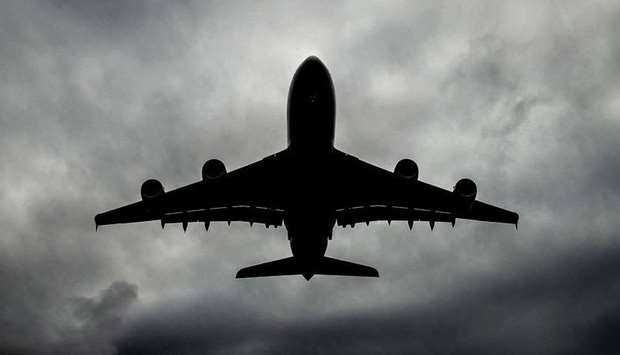Beyond the Tarmac- Aviation Page
Air travel has fallen on hard days since the onset of the coronavirus pandemic six months ago, with the number of travellers dropping significantly around the world.
Covid-19 has decimated air travel globally. Airlines worldwide have been largely grounded since mid-March.
The pandemic caused commercial air travel to come to a standstill for several months, and it is now at only a fraction of 2019 demand!
Financially, 2020 will go down as the worst year in the history of aviation. Globally, airlines are expected to lose $84.3bn this year.
And the situation is not improving either. In fact, in many cases it is going in the wrong direction.
The global body of airlines – International Air Transportation Association (IATA) predicted in late July that global air travel won't recover from the pandemic until 2024, a year later than its previous projection.
Despite the challenges the global economy, aviation in particular, are facing amidst the Covid-19 pandemic, the airline industry certainly has not lost sight of the responsibility it has to reduce emissions in the long term.
The industry’s commitment to cut emissions to half 2005 levels recently got a huge backing from leading global airlines alliance – oneworld.
Industry figures reveal carbon emissions per passenger have declined by more than 50% since 1990. Much of the improvement has occurred because the industry has achieved an annual fuel efficiency improvement of 2.3% over the period since 2009, some 0.8 percentage points ahead of target.
This progress, obviously, is a combination of investments in more efficient aircraft and operational efficiencies.
“Cutting per passenger emissions in half is an amazing achievement of the technical expertise and innovation in the aviation industry. But we have even bigger ambitions. From 2020 we will cap net emissions. And by 2050 we will cut emissions to half 2005 levels. Accomplishing these targets means continued investment in new technology, sustainable fuels, and operational improvements," said Alexandre de Juniac, IATA's Director General and CEO.
Airlines have invested some $1tn in new aircraft since 2009, and in addition have signed forward purchase agreements for sustainable aviation fuel (SAF) amounting to approximately $6bn.
In addition, the introduction of the Carbon Offsetting and Reduction Scheme for International Aviation (CORSIA) will ensure carbon-neutral growth on international flights from 2020 and raise around $40bn in climate finance.
That said, CORSIA scheme's effectiveness lies in its global scope. It is estimated it will reduce emissions by around 2.5bn tonnes over the lifetime of the scheme.
But global goodwill towards implementing CORSIA is being compromised by governments introducing a patchwork of carbon taxes. A series of decisions or proposals have been made in recent years to levy air passenger taxes, including in France, Germany, the Netherlands and Switzerland.
"Taxation aimed at stopping people from exercising their freedom to fly will make travel more expensive but do very little to reduce emissions. It is a politician's feel-good solution, without taking responsibility for the negative impact it has on the economy or the mobility restrictions it imposes on people with lower incomes," said de Juniac.
Recently, oneworld member airlines including Qatar Airways have committed to net zero carbon emissions by 2050, becoming the first global airline alliance to unite behind a common target to achieve carbon neutrality.
The alliance’s 13 member airlines plan to achieve this target within the existing environmental framework previously agreed to by governments, including through the International Civil Aviation Organisation (ICAO).
The airlines will develop their individual approaches to reach the target of net zero carbon emissions by 2050, through various initiatives such as efficiency measures, investments in sustainable aviation fuels and more fuel-efficient aircraft, reduction of waste and single-use plastics, and carbon offsets among other measures.
oneworld chairman and Qantas Group CEO Alan Joyce said, “The commitment of oneworld member airlines to reach net zero emissions by 2050 underlines the importance that we as an alliance have placed on becoming a more sustainable industry. Despite the challenges we are all facing amidst the Covid-19 pandemic, we have not lost sight of the responsibility we have to reduce emissions in the long term and today’s announcement reflects the strength of that commitment.”
oneworld’s commitment is widely seen as a significant announcement in a year when the industry has been hit hard by Covid-19 lockdowns.
Long-term, aviation is aiming to reduce emissions with cleaner technology. However, this will require a financially sound airline sector capable of funding the significant investments that will be needed to make flying sustainable.
* Pratap John is Business Editor at Gulf Times. Twitter handle: @PratapJohn




